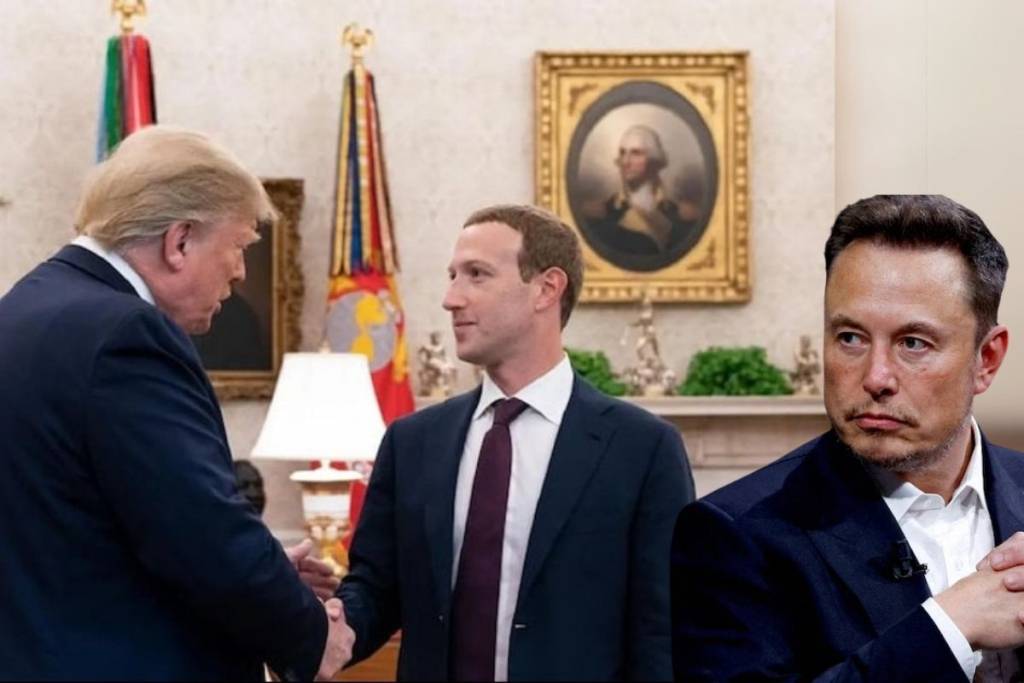Meta Donates $1 Million to Trump Fund: A Controversial Move
In a surprising and controversial move, Mark Zuckerberg's Meta has donated $1 million to a fund supporting former U.S. President Donald Trump. This donation, made public recently, has sparked debates over the relationship between tech giants and political figures, raising questions about the influence of big tech on politics and the potential conflicts of interest involved.
The Donation and Its Implications
The $1 million donation is being directed to a fund associated with Trump’s political endeavors, specifically aimed at financing his legal battles and supporting his political future. This move has come under intense scrutiny, especially given Meta's previous stance of blocking Trump’s account on its platforms following the January 6 Capitol riot.
Meta's involvement in political donations has long been a topic of controversy. While the company has been criticized for its role in shaping political discourse through its social media platforms, this donation has taken the conversation to a new level, as it highlights the financial ties between major tech firms and political figures.
Meta's Political Involvement
Meta, as one of the world’s largest social media companies, has had a complicated relationship with politics. In the past, Zuckerberg has faced criticism for allowing the spread of misinformation, hate speech, and political ads that have influenced elections. However, Meta has also been involved in philanthropic efforts and has made donations to various causes, including social justice initiatives and public health campaigns.
This latest donation to Trump’s fund, however, stands in stark contrast to the company's previous actions. Meta had previously suspended Trump’s accounts on Facebook and Instagram due to his role in inciting the violence on January 6. The suspension raised questions about the role of social media platforms in moderating political content, especially when it involves public figures with significant influence.
Public Reaction and Criticism
The donation has received backlash from various political and social groups. Critics argue that it undermines Meta’s previous efforts to distance itself from Trump and raises concerns about the influence of money in politics. They also question whether such donations are made with the intention of gaining favor with powerful political figures or to maintain a positive image with conservative audiences.
On the other hand, some have defended the donation, claiming that it is simply a form of political support and that companies should have the right to donate to causes they believe in. Supporters argue that Meta’s donation reflects a broader trend of corporate involvement in politics, where businesses contribute to both major political parties and movements to ensure their interests are represented.
What This Means for the Future of Tech and Politics
Meta’s $1 million donation to Trump’s fund underscores the growing intersection between the tech industry and politics. As tech companies continue to wield significant influence over public discourse and political campaigns, their financial and political ties will likely come under greater scrutiny. This move could set a precedent for other tech giants to follow, further blurring the lines between corporate interests and political influence.
The donation also raises important questions about transparency and accountability in political funding. While companies have the right to support political causes, there is a need for greater scrutiny to ensure that these contributions do not undermine democratic processes or lead to undue influence over elected officials.
Conclusion
Meta’s $1 million donation to Trump’s fund has sparked a debate about the role of big tech in politics and the ethical considerations surrounding corporate donations. As the relationship between tech companies and political figures continues to evolve, it is crucial for both the public and policymakers to closely examine the implications of such financial support. The future of tech and politics will undoubtedly be shaped by these complex interactions, and it remains to be seen how this donation will influence Meta’s reputation and its relationship with the political landscape.


